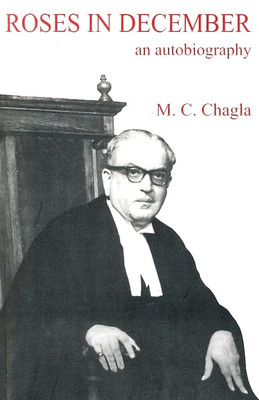Justice M. C. Chagla is one of the most celebrated judges of Independent India. He was the First Indian and the longest serving Chief justice of the Bombay High court. Being the first lawyer in his family he joined the bar as a stranger, walking into Muhammed Ali Jinnah’s chambers.
He talks of his days at the bar, the difficulty in getting briefs at the rudimentary stage,the judges who encouraged rookies to argue in court and excitement to watch classic cricket being played at the club by the High Court. His experiences with Jinnah are of vital historical importance speaking volumes about the Muslim Leader, from being an astute nationalist to his whimsical stand for a separate nation. His stint on the bench is prodigious, being the only judge who never reserved a judgement in his career. His reign as Chief Justice gives an insight into the dogmatic power struggle between the Judiciary and the Executive while making appointments to the higher judiciary. Reflecting Secular standards of that time, he recounts a situation where Morarji Desai (Hindu Chief Minister) backed a muslim candidate for judgeship, while he (Chief Justice) being a muslim refused as there were others much more meritorious than the said candidate. By dint of his success on the bench he gets elevated to the International Court of Justice, however this is where the starts getting mundane and marres on the tempo built so far. Nonetheless, the repertoire covering his role as ambassador to US and high commissioner to UK, invigorates back life as if a phoenix, by lending perspective to political events that are of pivotal international importance. The book is an exhortation on ethics in the legal profession both on and off the bench, spiced up by anecdotes and epigrams concerning the legal legends and high political functionaries. Justice Chagla hasn’t reserved himself when it comes to his command on the language, making the dictionary a full time companion. Believing it to be his duty, he has left an account of various experiences in his career, for the posterity to learn from, creating roses for us in the December of his life.
 The book review was submitted by Sushant Kareer.
The book review was submitted by Sushant Kareer.
